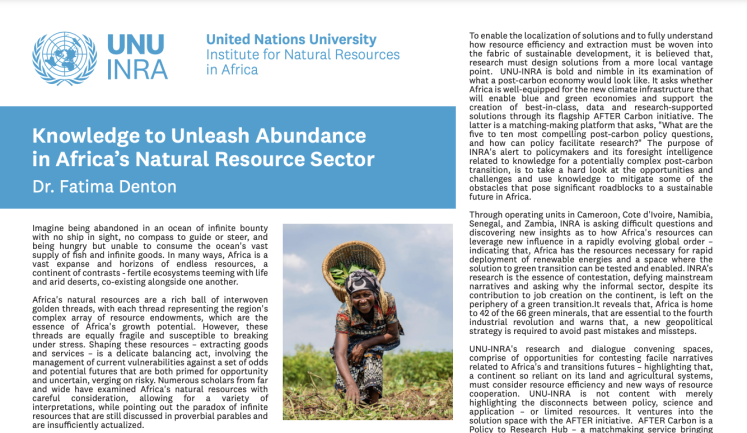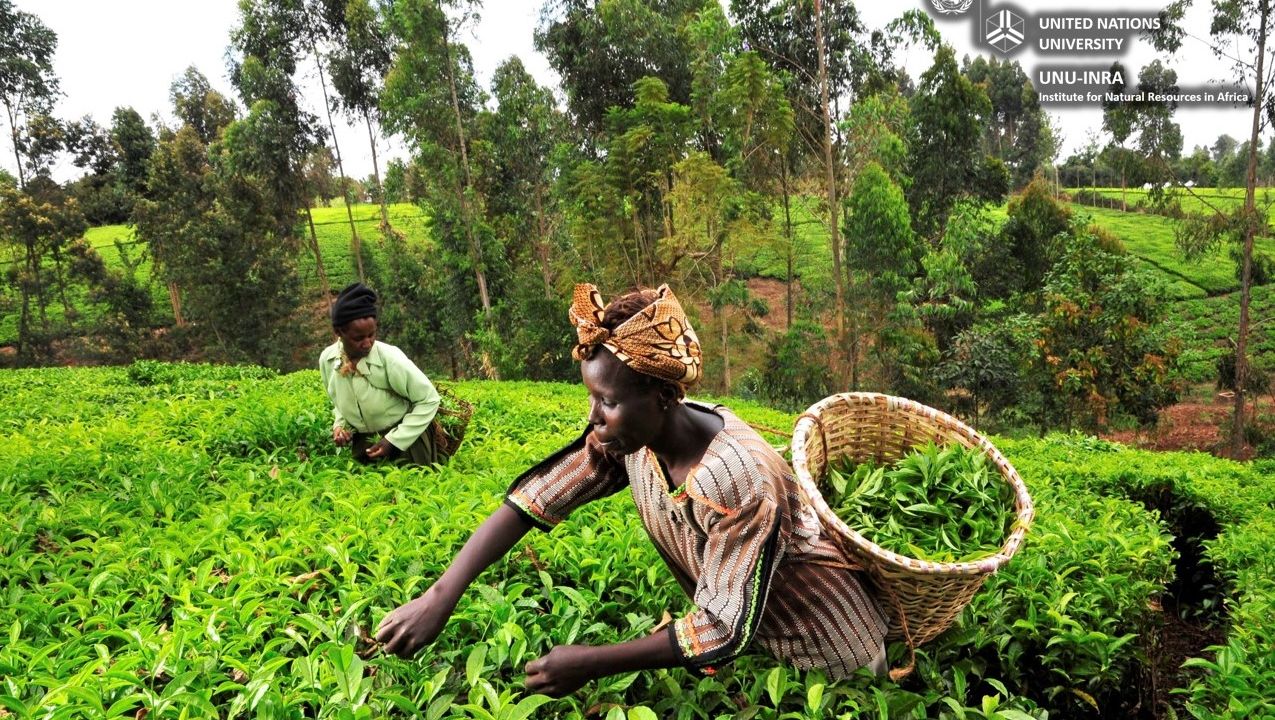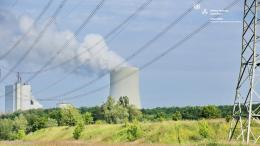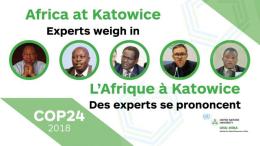Imagine being abandoned in an ocean of infinite bounty with no ship in sight, no compass to guide or steer, and being hungry but unable to consume the ocean’s vast supply of fish and infinite goods. In many ways, Africa is a vast expanse and horizons of endless resources, a continent of contrasts – fertile ecosystems teeming with life and arid deserts, co-existing alongside one another.
Africa’s natural resources are a rich ball of interwoven golden threads, with each thread representing the region’s complex array of resource endowments, which are the essence of Africa’s growth potential. However, these threads are equally fragile and susceptible to breaking under stress. Shaping these resources – extracting goods and services – is a delicate balancing act, involving the management of current vulnerabilities against a set of odds and potential futures that are both primed for opportunity and uncertain, verging on risky. Numerous scholars from far and wide have examined Africa’s natural resources with careful consideration, allowing for a variety of interpretations, while pointing out the paradox of infinite resources that are still discussed in proverbial parables and are insufficiently actualized.
Nevertheless, Africa is the continent to watch – a continent with a projected population of close to 2.5 billion people by 2050 in a region struggling to overcome numerous development challenges, including food, energy, water security, and the big one, climate change and resource depletion, where ambitions to mitigate and adapt to climate impacts are not matched by resources in terms of technology, capacity, or finance.
The United Nations University, a formidable arsenal of thirteen institutes operating through a network of international scholars across all seventeen sustainable development goals, has a unique perspective on how research can intersect with policy. In a world beset by small and large adversities, ranging from wars in Europe to enabling weak supply chains, knowledge that can influence development trajectories, provide new narratives for old problems, and enable economies to reboot their systems is a valuable commodity. Using knowledge to leverage partnerships with strategic stakeholders such as policy makers, civil society, academia, and the private sector is essential to priming Africa’s resources for use and supporting them to fulfil the promise of economic and social transformation.
UNU-INRA was established in 1985 in accordance with a draught resolution adopted at the 21st ordinary session of the Organization of African Unity (OAU) in Addis Ababa. Since then, UNU-INRA has taken pride in demonstrating to African governments and institutions the central role of science, infrastructure, and innovation in promoting natural resource governance and development in Africa, in addition to serving as a preeminent institute delivering science for practice.
The institute is making significant advances in evidence-based research, alerting policymakers to the risks associated with the continued use of fossil fuels and the likelihood of these resources becoming stranded and losing their economic value. UNU-INRA was quick to identify stranded assets as a twenty-first century problem at a time when Africa’s economies are in decline. Research carried out by UNU-INRA has revealed that, assets that risk becom- ing stranded such as oil, gas and coal, are more likely to fail to deliver on the promise of greater prosperity and broad-based development.
To enable the localization of solutions and to fully understand how resource efficiency and extraction must be woven into the fabric of sustainable development, it is believed that, research must design solutions from a more local vantage point. UNU-INRA is bold and nimble in its examination of what a post-carbon economy would look like. It asks whether Africa is well-equipped for the new climate infrastructure that will enable blue and green economies and support the creation of best-in-class, data and research-supported solutions through its flagship AFTER Carbon initiative. The latter is a matching-making platform that asks, “What are the five to ten most compelling post-carbon policy questions, and how can policy facilitate research?” The purpose of INRA’s alert to policymakers and its foresight intelligence related to knowledge for a potentially complex post-carbon transition, is to take a hard look at the opportunities and challenges and use knowledge to mitigate some of the obstacles that pose significant roadblocks to a sustainable future in Africa.
Through operating units in Cameroon, Cote d’Ivoire, Namibia, Senegal, and Zambia, INRA is asking difficult questions and discovering new insights as to how Africa’s resources can leverage new influence in a rapidly evolving global order – indicating that, Africa has the resources necessary for rapid deployment of renewable energies and a space where the solution to green transition can be tested and enabled. INRA’s research is the essence of contestation, defying mainstream narratives and asking why the informal sector, despite its contribution to job creation on the continent, is left on the periphery of a green transition.It reveals that, Africa is home to 42 of the 66 green minerals, that are essential to the fourth industrial revolution and warns that, a new geopolitical strategy is required to avoid past mistakes and missteps.
UNU-INRA’s research and dialogue convening spaces, comprise of opportunities for contesting facile narratives related to Africa’s and transitions futures – highlighting that, a continent so reliant on its land and agricultural systems, must consider resource efficiency and new ways of resource cooperation. UNU-INRA is not content with merely highlighting the disconnects between policy, science and application – or limited resources. It ventures into the solution space with the AFTER initiative. AFTER Carbon is a Policy to Research Hub – a matchmaking service bringing together scientists, entrepreneurs, policy makers, and civil society groups, within a transdisciplinary research programme proposing that an African-led approach will consider unique contextual challenges that the continent must focus on – pro-actively sourcing local problems and combining with global experience, to find the best solutions in managing a green transition.
Clearly, if we are to take advantage of Africa’s unique position – including its lack of legacy infrastructure and abundance of minerals, rainforest, and arable land, we must provide African institutions with world-class scientific research on the available solutions. Zeroing in on some of the continent’s toughest challenges to date, as well as areas where opportunities abound, INRA’s bold and open-ended approach to research enquiry is asserting that policy change cannot happen at the expense of a knowledge economy where every part of the transition to a sustainable future is anchored in science and in quality and credible research.
Knowledge is the lighthouse that guides us towards responsible resource extraction and UNU-INRA is collaborating with policy makers, local communities, and business sector stakeholders, to shape this critical force for good and assist African countries in unlocking the doors to growth and transformation.
Download UNU-INRA Daily graphic article here
Written by Dr. Fatima Denton.
Dr. Denton is the Director of the United Nations University Institute for Natural Resources in Africa (UNU-INRA). Before joining UNU-INRA, she worked as Director of the Special Initiatives Division and Coordinator of the African Climate Policy Centre (ACPC) at the United Nations Economic Commission for Africa (UNECA). Dr. Denton’s research has centred on climate change adaptation, focusing on resilience systems in agriculture, water, and energy, principally in Africa. She works on the intersections of adaptation and mitigation, focusing on transition theories, not least green transitions, stranded assets, and minerals and extractives. Dr. Denton has served as a Lead Author and Co-ordinating Lead Author of the Intergovernmental Panel on Climate Change(IPCC), contribut- ing to reports and special reports over the past two decades.
Suggested citation: Dr. Fatima Denton. "Knowledge to Unleash Abundance in Africa’s Natural Resource Sector," United Nations University, UNU-INRA, 2023-05-23, https://unu.edu/inra/article/knowledge-unleash-abundance-africas-natural-resource-sector.





